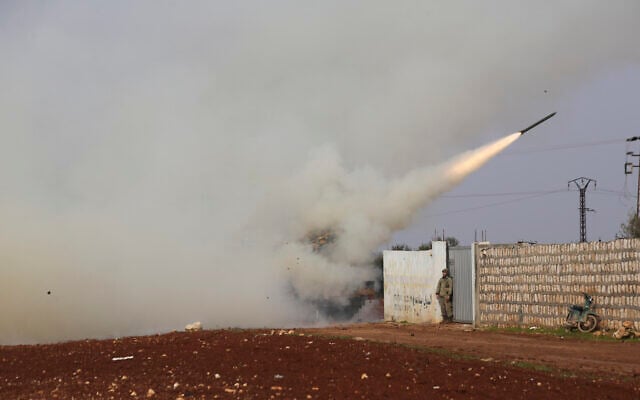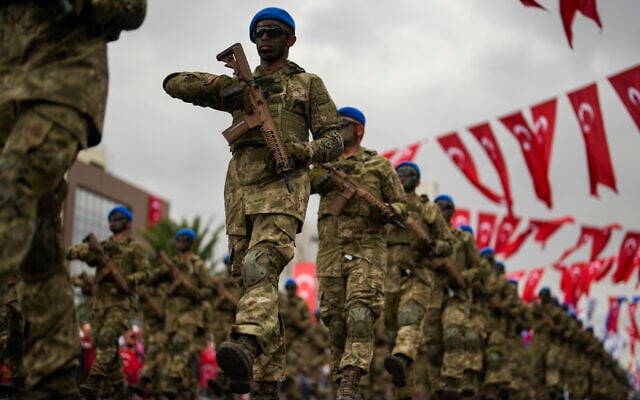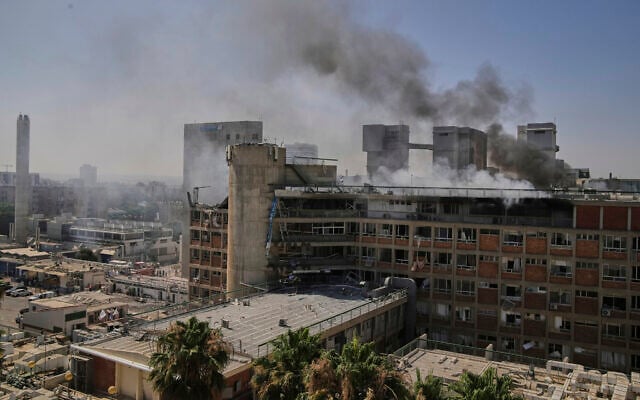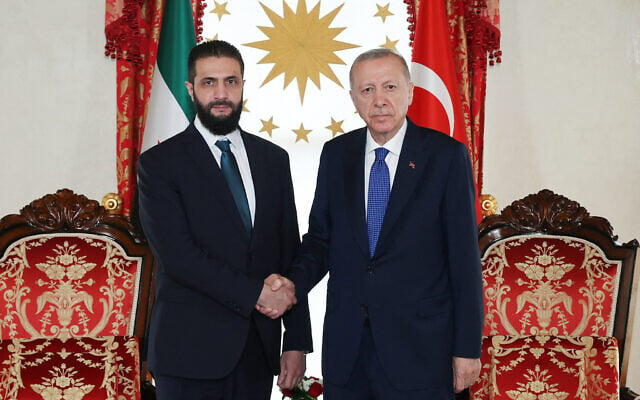


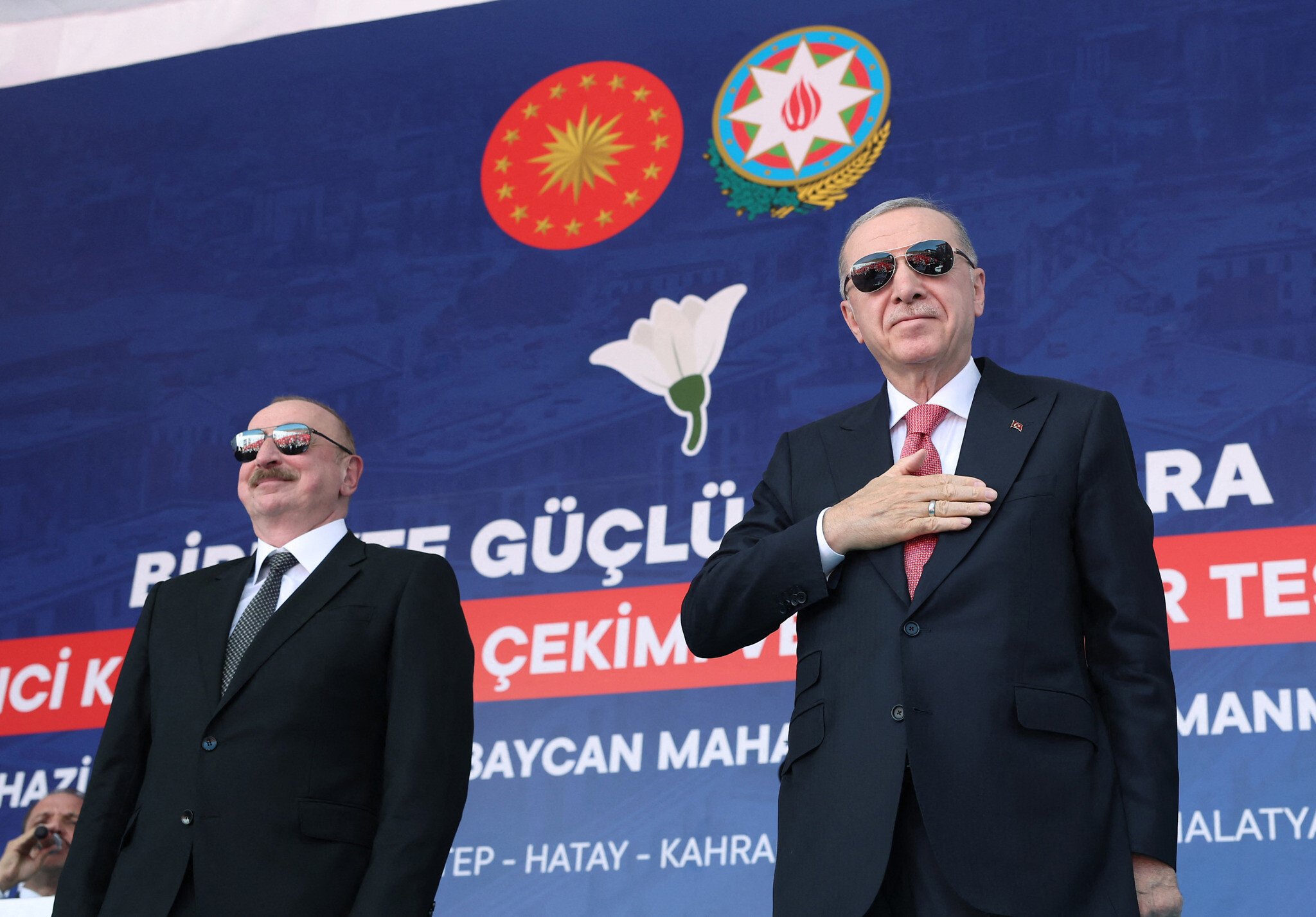
The escalating Iran-Israel confrontation is quickly reaching “the point of no return,” Turkish President Recep Tayyip Erdogan said on Friday and announced plans by Ankara to boost production of medium- and long-range missiles so no country dares attack Turkey, sparking fears of a regional arms race.
Iran and Israel have been at war for eight days after Israel, claiming that the Islamic Republic — sworn to Israel’s destruction — was on the brink of acquiring a nuclear weapon, launched a massive wave of strikes on its arch-rival, triggering an immediate response from Tehran.
“Unfortunately, the genocide in Gaza and the conflict with Iran are quickly reaching the point of no return. This madness must end as soon as possible,” Erdogan said, warning the consequences could affect the region, Europe and Asia “for many years.”
“It is imperative that fingers are removed from the triggers and buttons before more destruction, bloodshed, civilian casualties and terrible disaster occur, that could affect our region, as well as Europe and Asia for years to come,” he said.
His remarks were made at an Organisation of Islamic Cooperation (OIC) youth forum in Istanbul ahead of a gathering of OIC foreign ministers over the weekend.
Among those due to attend was Iranian Foreign Minister Abbas Araghchi, with the ongoing crisis with Israel likely to feature high on the agenda at the two-day talks.
Erdogan also discussed the Israel-Iran war with German Chancellor Friedrich Merz in a telephone call on Friday, telling Merz that the Iranian nuclear issue can only be resolved through negotiations, according to Erdogan’s office.
Erdogan has indicated that Turkey needs to boost its deterrence capabilities to ensure nobody attacks the country amid the war, which began last week.
Following a cabinet meeting on Monday, he said: “We are making production plans to bring our medium- and long-range missile stockpiles to a level that ensures deterrence, in light of recent developments.”
“God willing, in the not-too-distant future, we will reach a defense capacity that is so strong that no one will even dare to act tough toward us,” Erdogan said.
In a separate address days later, the Turkish leader highlighted Turkey’s progress in its domestically developed defense industry, which includes drones, fighter jets, armored vehicles and navy vessels, but stressed that continued effort was needed to ensure full deterrence.
Despite Ankara’s tense relations with Jerusalem, analysts and officials don’t see an immediate threat of the Israel-Iran war spreading into NATO-member Turkey. Still, some see Erdogan’s plans to increase missile production as a sign that the conflict could trigger a new arms race in the region, with countries not directly involved ramping up their military efforts to preempt future conflicts.
Ahmet Kasim Han, a professor of international relations at Istanbul’s Beykoz University, said Turkey was reacting to what he described as an unraveling world order.
“The Turkish government is drifting toward what is the name of the game in the Middle East right now: an escalation of an arms race,” said Han.
Israel and the US have set a high standard in aerial warfare, creating a technological gap that Turkey and others are eager to close, he said.
Ozgur Unluhisarcikli, a Turkey analyst at the German Marshall Fund think tank, said that “although Turkey has a very large army — the second largest in NATO — its air power, its air defense is relatively weaker.”
The ongoing conflict has reinforced the importance of air superiority, including missiles and missile defense systems, prompting “countries in the region, including Turkey, to strengthen their air power,” he said.
Since the start of the conflict, Erdogan has been scrambling to end the hostilities. He has held a flurry of phone calls with leaders, including US President Donald Trump and Iranian President Masoud Pezeshkian, offering to act as a “facilitator” for the resumption of negotiations on Iran’s nuclear program.
There are deep concerns in Turkey that a prolonged conflict will cause energy disruptions and lead to refugee movement from Iran, with which it shares a 560 kilometer-long (348 mile) border.
Turkey relies heavily on energy imports, including from Iran, and rising oil prices due to the conflict could aggravate inflation and further strain its troubled economy.
Turkey has strongly assailed Israel’s airstrikes in Iran and said the Islamic Republic has the right to defend itself. The strikes have triggered deadly Iranian missile attacks across Israel.
Once close allies, Turkey and Israel have grown deeply estranged, especially after the Hamas onslaught of October 7, 2023, which sparked the war in Gaza. Erdogan, who supports Hamas, has been one of the fiercest critics of Prime Minister Benjamin Netanyahu’s conduct in the Strip.
Relations further deteriorated after the ouster in December of Syrian President Bashar Assad’s government, as Israel grew increasingly wary of expanding Turkish influence in Syria.
Earlier this year, however, Turkey and Israel established a “de-escalation mechanism” aimed at preventing conflict between their troops in Syria. The move came after Syria’s foreign ministry said that Israeli jets had struck a Syrian air base that Turkey reportedly hoped to use.
Israel hasn’t commented on Turkey’s announcement that it plans to ramp up missile production, but Foreign Minister Gideon Sa’ar responded to Erdogan’s criticisms of Israel over its attack on Iran in an X post on Wednesday. He accused Erdogan of having “imperialist ambitions” and of having “set a record in suppressing the freedoms and rights of his citizens, as well as his country’s opposition.”
Erdogan’s nationalist ally, Devlet Bahceli, suggested that Turkey was a potential target for Israel, accusing the country of strategically “encircling” Turkey with its military actions. He didn’t elaborate.
Analysts say, however, that such statements were for “domestic consumption” to garner support amid growing anti-Israel sentiment in Turkey.
“I don’t think that Israel has any interest in attacking Turkey, or Turkey has any interest in a conflict with Israel,” Han said.

